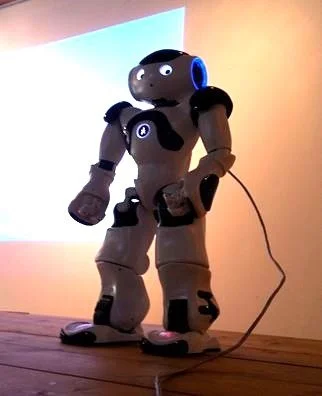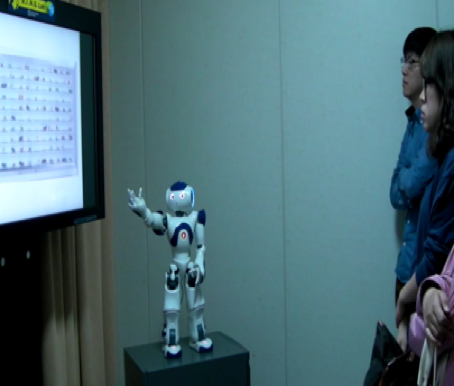Design Research Area 5
Human-Robot Interaction
Robot gesture and user
acceptance of
Information
in Human-Robot Interaction.
Robot gesture and user acceptance of Information in Human-Robot Interaction.
This study explores how human users respond to coordinated and uncoordinated gestures of a robot as an information communicator.
These results have theoretical implications for cognitive load and working memory effects in human-robot interaction
and practical implications for designing and deploying dynamic humanoid robots for training and as a museum tour guide.
Funded: Korea Research Foundation (NRF)
Qualitative Research-based Design Guidelines for a Social Companion Robot for Women in their 40s and 50s.
Kim, S, & Kum-Biocca, H. H., (2021) Social Robots for Housewives: A Study, The 2021 IEEE International Conference on Advanced Robotics and its Social Impacts (ARSO 2021), Japan/Virtual.
This study examines the idea of a social robot for lonely individuals. Numerous studies have analyzed the effects of loneliness on health, especially of older adults, establishing that loneliness persists for long periods of life and is very difficult to overcome. Hence, this study investigates the problems that middle-aged housewives face and explores solutions to help them alleviate their loneliness.
Funded: NSF I-Corps Hub




